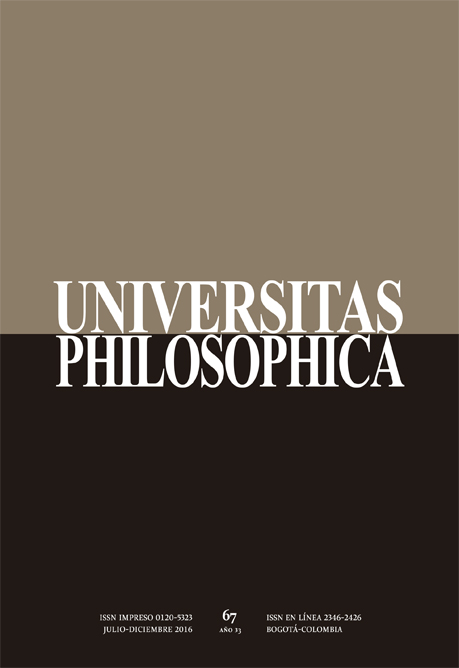Resumen
En la reflexión agustiniana, el análisis del tiempo deriva de su condición misma de creatura; por esta razón, el tiempo resulta ser como es, es decir, resulta tener esa precariedad ontológica que comparte con todo lo creado. Cuando preguntamos por el tiempo, descubrimos que esta realidad no es algo más que nuestro entendimiento pueda abordar a la manera como se toma un objeto desconocido, sino que esta noción se nos revela como una dimensión de nuestro ser. En presente artículo propongo una clave de interpretación del libro XI de Confesiones en el cual muestro la importancia de presentar el sentido de la existencia temporal de cara al Creador eterno, así como propongo una interpretación de la dimensión doble, positiva y negativa, de la distentio animi.
Esta revista científica se encuentra registrada bajo la licencia Creative Commons Reconocimiento 4.0 Internacional. Por lo tanto, esta obra se puede reproducir, distribuir y comunicar públicamente en formato digital, siempre que se reconozca el nombre de los autores y a la Pontificia Universidad Javeriana. Se permite citar, adaptar, transformar, autoarchivar, republicar y crear a partir del material, para cualquier finalidad (incluso comercial), siempre que se reconozca adecuadamente la autoría, se proporcione un enlace a la obra original y se indique si se han realizado cambios. La Pontificia Universidad Javeriana no retiene los derechos sobre las obras publicadas y los contenidos son responsabilidad exclusiva de los autores, quienes conservan sus derechos morales, intelectuales, de privacidad y publicidad.
El aval sobre la intervención de la obra (revisión, corrección de estilo, traducción, diagramación) y su posterior divulgación se otorga mediante una licencia de uso y no a través de una cesión de derechos, lo que representa que la revista y la Pontificia Universidad Javeriana se eximen de cualquier responsabilidad que se pueda derivar de una mala práctica ética por parte de los autores. En consecuencia de la protección brindada por la licencia de uso, la revista no se encuentra en la obligación de publicar retractaciones o modificar la información ya publicada, a no ser que la errata surja del proceso de gestión editorial. La publicación de contenidos en esta revista no representa regalías para los contribuyentes.


